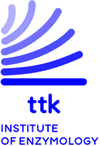
Description of the RI
The Biomarker Research Laboratory is an excellent platform for biomarker research projects supporting personalized medication and their application for diagnostic and therapeutic purposes. The equipment of the laboratory units (gene analytics, cell culture and stem cell laboratory, virus and FACS units, mass-spectrometry, biobank) is applied in high-throughput, multilevel research projects on nucleic acid, protein and cellular biomarkers related to public health problems.
Activities and Services
Gene Analytics laboratory: the multi-level analysis of nucleic acids for modern PCR measurements (gene expression, identification of mutations and copy number variations) facilitates specific target research and high-throughput routine studies and provides a platform for various nucleic acid based technologies.
Cell Culture laboratory: drug-resistance research with a wide repertoire of tumor models, supported by state-of-the-art cell biology instruments (i.e. Hamilton STARlet, erkinElmer Enspire, JuLI Stage; the complete NCI-60 cell-line panel as well as xenograft, allograft and genetically engineered mouse models of cancer aid the development and testing of novel anticancer compounds.
Human Pluripotent Stem Cell lab: stem cell generation and differentiation (e.g. in the direction of cardiac, neuronal, endothelial and mesenchymal cell types); studying of membrane transporters as well as calcium signalling; development of induced pluripotent stem cell-based disease models and transgenic cellular reporter systems.
BSL2 biosafety Virus Laboratory: genetically modified cell lines with Adeno-, Lenti-, Sendai- and Retroviruses are created for studying diseases based on genetic differences; using DNA constructs in the laboratory, non-replicating viral particles are produced and used to “infect” target cells and express target proteins; frozen storage and subsequent use of the viruses produced.
The Flow Cytometry Laboratory uses FACS devices for studying fluorescent proteins, drug transport processes and antibody labeling expressed in cells. Cells expressing specific proteins can be selected from genetically modified cell lines using a high-throughput cell sorter (FACSAria III) to generate homogeneously expressing cell lines. The laboratory has the equipment needed for fluorescent labeling and the maintenance of cell lines under sterile conditions.
The Mass-spectrometry Laboratory identifies of the molecular weight, the elemental composition and the possible structure of small and large biomolecules. Furthermore the lab identifies the covalent modifications of molecules, including the position, and the sensitive quantitation of target molecules.
The biobank-licensed Perinatal Biobank was designed in accordance with industry standards, equipped with an uninterruptible power supply and CO2 backup system, ultra-deep freezers with temperature monitoring and alarm system, and a 2D barcoded recording system. With the pregnancy sample collection containing tens of thousands of samples, it provides an excellent background for domestic and international collaborations to explore the molecular background of obstetrical syndromes and develop non-invasive biomarkers, facilitating early diagnosis and targeted, personalized treatments.
Single sited
Research Centre for Natural Sciences, Institute of Enzymology
Budapest
Fully operational, 2014–
- Toxi-Coop Toxicological Research Center
- Kineto Lab Ltd.
- Turbine Simulated Cell Technologies Ltd.
- Gedeon Richter Plc.
INTERNATIONAL COLLABORATION
With RIs
- ELIXIR European life-science infrastructure Node
- INSTRUCT ERIC
- Johns Hopkins Medicine
- Medical University of Vienna
- Mobile DNA Group, Max Delbrück Center for Molecular Medicine in the Helmholtz Society
- National Institute of Child Health and Human Development, NIH
- IFOM the FIRC Institute of Molecular Oncology
László Buday, director general







